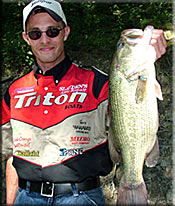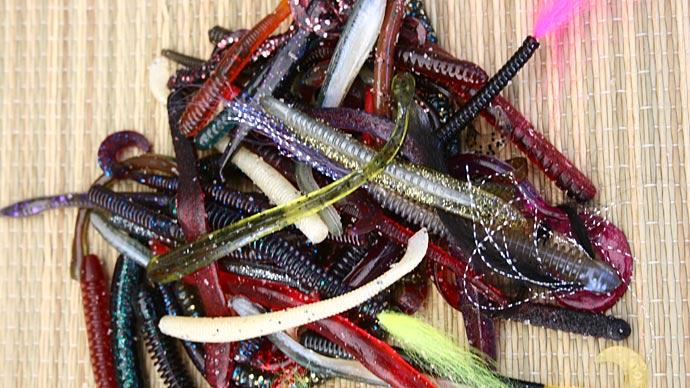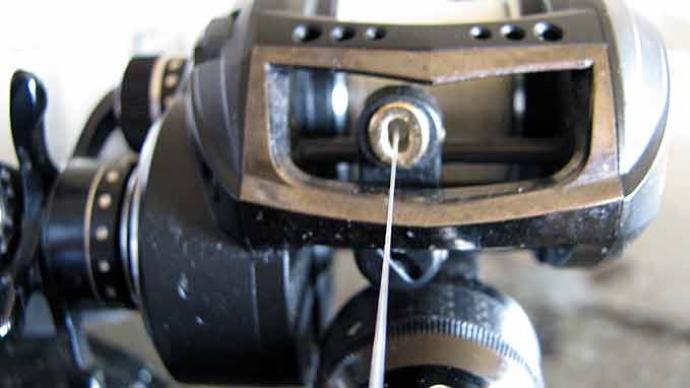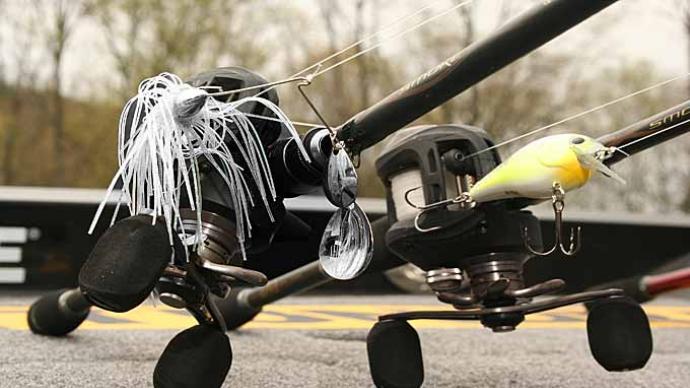
Here in the Northern part of the country, we are barely into our cold-weather season. Already my anxiety level is going through the roof. I have cleaned the basement and got all of my tackle sorted. Next year's gear has already been ordered. Now all I can do is sit around waiting for spring and dreaming about bass fishing if I want all of my hard work and practice to go down the drain.
If you are one of the millions of bass anglers that reside in the northern half of the United States, the winter months can seem to last an eternity. The lakes and rivers become large ice hockey rinks. No matter how hard I try, I can't figure out how to get my Minn Kota to cut through the hard water, and my Senkos just lay motionless on the ice. I guess that rules out ice fishing.
Most bass anglers can't afford the luxury of heading south for the winter or taking trips to exotic warm climate locations. Instead, we must stay in our snow-covered prisons, anxiously awaiting our springtime release date. Rather than spending four months dreaming of the bass that you could be catching, take advantage of the off-season. This is the time of year to hone some of your skills and increase your knowledge for next season.
I have a miniature obstacle course set up in my basement. There is a variety of targets obstructed by different objects. This is how I attempt to keep in stroke for pitching and flipping different baits. Each one of the obstructed targets serves its unique purpose. One obstacle that has been very beneficial to me is a small tunnel made out of cardboard boxes. A small lid from a laundry detergent bottle is at the end of the tunnel, representing my strike zone. I use this course to practice pitching to low, congested targets. I designed this obstacle two years ago, and it had paid great dividends when it came to getting a jig under a boat dock or pitching underneath low-hanging trees.
This also keeps me tuned in with my equipment. When I pull out my All Star rods and Pflueger reels in the spring, they will not feel awkward. That is because they will have been a vital part of my off-season workout routine. To the untrained eye, this could be just a stupid little game that I play all alone, but do you think major league pitchers sit around all winter? Of course not. They are in a gym somewhere, working on their sliders and fastballs. The time you invest in refining your skills during the winter will offer tremendous benefits come tournament time in the spring.
Take this time to learn how your lures work. Several colleges, high schools, and local YMCAs have indoor swimming pools. For a minimal fee, anglers can rent these pools by the hour. The crystal clear water is a perfect testing ground for seeing exactly how different baits look in action. Take several different baits and study how different retrieves and rod movements affect their activities in the water. For one reason or another, each of us has developed an idea of what we think our baits do when we retrieve them a certain way. By seeing these baits with an unobstructed, clear view, we can now witness whether or not our assumptions were correct.
Boat show season can also be a considerable off-season advantage to anglers. Typically, these shows offer seminars that are taught by seasoned pros. Visit as many seminars or instructional demonstrations as you possibly can. These seminars require little or no fee to attend most of the time. B.A.S.S. holds several Bassmaster University educational programs every January and February. The top anglers teach these hugely popular, two-day training programs in the business. To the best of my knowledge, nobody else offers instructional seminars that feature the likes of Davy Hite, Hank Parker, Jay Yelas, Woo Daves, Larry Nixon, Kevin VanDam, and numerous other top tournament-winning pros. Although a little higher priced, attending one of these programs may help push you to the next level of competitive bass fishing.
When you can't get out to these seminars or other educational programs, use your time at home to learn as much as you can. Reading several magazines and visiting fishing websites can be like getting a fast-track bachelor's degree in bass fishing. Websites such as BassResource.com offer anglers a massive assortment of informative articles, as well as fishing chat rooms and message boards. After you read an article, you can go to the forum or the chat room and discuss the various topics with other anglers. Not only will you learn more about the sport you love, but there is the potential for meeting new friends and fishing partners that love the sport as much as you. These sites are available twenty-four hours a day is perfect for everyone, regardless of their work schedule.
Another valuable tool for increasing your winter season education is fishing-related videos. From the comfort of your couch, you can learn tips and tactics from the country's best professional bass anglers. Plastic Tactics and Understanding Sonar by Mike Del Visco are two great learning aids for anglers of all skill levels. Kevin VanDam's Pitching to Heavy Hitters does a beautiful job explaining when and where to flip and pitch your baits to become more successful. Woo Daves' Structure School gives a detailed look at various aspects of fishing for deep bass. Numerous other videos on the market can help you increase your knowledge level. Take advantage of these resources and practice the techniques you learned once spring arrives. You will be amazed by the results.
Rather than moping around and letting your skills diminish, take advantage of your off-season. Not only will you emerge as a more educated and highly skilled angler, but it will also make the time pass more quickly.
Until next time, Fish Hard, Fish Often and Don't Hate the Player, Hate the Game.




